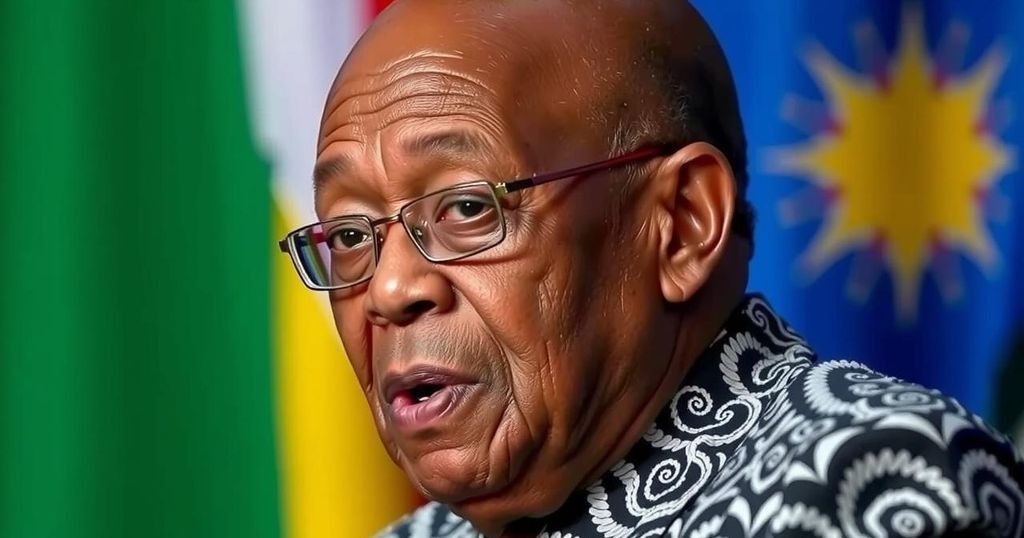Botswana’s Historic Political Shift: President Concedes Defeat After 58 Years of BDP Rule
Botswana’s President Mokgweetsi Masisi conceded defeat in the October 2024 election, ending the BDP’s 58-year rule. The UDC, led by Duma Boko, emerged as the likely victors in the closely contested elections, marking a pivotal change in the country’s political landscape. Masisi’s acknowledgment of defeat was a significant move towards a peaceful transfer of power.
In a historic shift for Botswana, President Mokgweetsi Masisi conceded defeat in the general election held on October 30, 2024. This significant event culminated in the end of the Botswana Democratic Party’s (BDP) 58-year rule, marking a pivotal change in the nation’s political landscape. In a surprising turn of events, Masisi acknowledged his party’s poor performance, with the BDP trailing in fourth place according to preliminary results. The main opposition, represented by the Umbrella for Democratic Change (UDC) and led by candidate Duma Boko, appeared poised to take control, leading the race amid the initial tally. Following the election, Masisi reached out to Boko to formally communicate his concession, a notable step in the peaceful transition of power for a country known as one of the largest diamond producers globally. Citizens had their voices heard during the election, indicating a desire for change after decades under the BDP’s governance.
Botswana has a well-established democratic tradition, having maintained a stable political climate since gaining independence from British rule in 1966. The Botswana Democratic Party (BDP) has been the dominant political force since then, holding onto power for nearly six decades. This election represented a critical juncture as it tested the public’s confidence in the longstanding ruling party amid increasing calls for political reform and accountability. As a significant player in southern Africa, Botswana’s political developments resonate across the region, impacting economic and social dynamics.
The recent election results in Botswana herald a new political era, with President Mokgweetsi Masisi’s concession marking the end of an extensive period of BDP leadership. The emergence of Duma Boko and the UDC as front runners suggests a shift in public sentiment towards progressive change and reflects the electorate’s readiness for new governance. This transition not only signifies a potential reformation in Botswana’s political framework but also underscores the importance of democratic processes in shaping the future of the nation.
Original Source: apnews.com




Post Comment